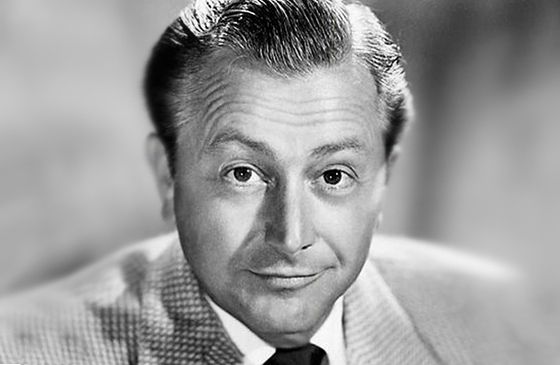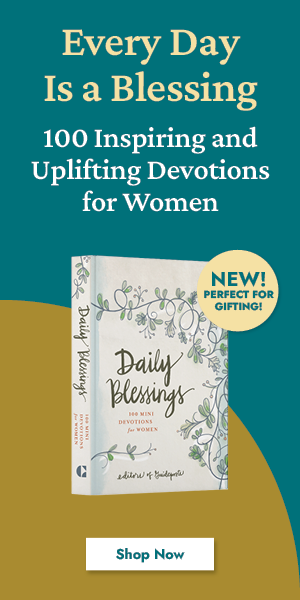When our first daughter was born, twenty-one years ago, my wife, Betty, and I prided ourselves on being enlightened parents. We hoped for a large family, and had decided to be very modern, very intellectual with our children.
They were to have something we called “Christian Standards,” by which I suppose we meant ethics, and to project the children in the right direction, we decided each would be christened in a non-sectarian church.
But no church ties would be forced upon them: they were to be allowed to choose for themselves.
I realize now that it would have been difficult to offer them any other course, since we had never made a choice ourselves.
I had been accepted into the Baptist church at the age of ten, but the only impressions my memory retained were the rite of immersion, the ability to recite the Books of the Old Testament, and a good attendance record at Sunday School for about two years.
A flood in Kentucky had destroyed the church record in the town where my wife was born and her mother could never rightly remember whether Betty was baptized a Congregationalist or a Methodist.
As a young married couple we didn’t worry about this, for we attended church only at the fashionable times of the year, Christmas and Easter. When I thought about it at all, I felt no need for constant church affiliation.
But we did want our children to have those Christian Standards!
Thus, each of our four daughters in order of their appearance—Carol Ann, Barbara, Betty Lou, Kathy—were christened in a lovely ceremony right in our living room by the minister of the Beverly Hills Community Church.
And right there my ignorance was showing; had I entered the church proper, as I have since done, I would have observed on the bulletin board that the denomination was Presbyterian. But I didn’t. Betty and I simply assumed that a Community Church was non-sectarian.
Once the girls were christened, we followed point two of our plan. Their mother and I tried to surround them with a closely knit, loving family atmosphere; we heard their prayers regularly, for we were praying people ourselves.
“You are,” I told my daughters proudly, “free to choose your own religion.” But I was as foolish as I was wrong. No real choice was being offered them, no habit of church going was being developed.
Fourteen years—fourteen long years—elapsed before any one of the children decided upon anything or even mentioned a specific church.
Then from boarding school Carol Ann wrote us a letter. Would we mind, she inquired, if she joined the Episcopal Church?
READ MORE: DONNA REED ON FAITH IN HARD TIMES
“It isn’t sudden,” wrote Carol Ann. “I’ve always had a tremendous respect for our chaplain, and I must admit it was his faith that made him what he is. So I began studying the service, trying to understand the words and the symbolism, and now they have great meaning for me.
“I truly love the service, and it gives me something I need.”
A few weeks later we attended her confirmation.
During that summer vacation, each Sunday while mother and father and all her younger sisters slept, our fifteen-year-old daughter rose quietly and went to All Saints Church in Beverly Hills. Then, out of deference to Carol Ann, Betty and I began attending with her.
The younger girls, still free to make their choice, now chose to get up and go to church school.
In one short summer we became a churchgoing family!
At first I, personally, felt strange; I had not been to church in a long time. Carol Ann’s return to school left us on our own, yet still we went. Why? Because it began to seem important, that’s why.
Then one Sunday morning an Adult Confirmation Class was announced. Here again my ignorance was evident. Somehow, I had thought that after one reached a certain age one was too old to be confirmed … nor was I sure I wanted permanent membership.
I listened to the reassuring statement that the curious, the weary, were welcome, temporarily or permanently.
As Betty and I attended the class we began to learn things, to feel a part of the group, and when the instruction period ended we went right on into full church membership.
We had made our decision.
READ MORE: DONNA DOUGLAS ON GIVING HER BEST
Our three remaining daughters were still offered their freedom of choice, but with this difference—our own choice had given them a real choice, churchgoing had become a reality. It was a thing you did, not something you just talked or wondered about.
How can you teach a child the necessity to make a choice if you haven’t found it necessary to make one yourself? Talk does not place values anywhere.
If we wanted our children to place God in the center of their lives, to have lasting Christian standards, then worship was not a question of forcing something on them but of offering them an opportunity, and of availing ourselves of the same privilege.
Has being a churchgoing family made a difference in our lives?
We feel it has.
There has been no dramatic sinner-to-saint conversion. Fortunately we did not insist on miracles.
But we have grown into a greater unity with one another and our fellow man, and there is a new steadiness and stability in our family life. It has been easier to discuss our problems in terms of our relationship to God.
The first thing it did for me personally was to rid me of a vast store of ignorance—the sly rumors I’d accepted almost unconsciously that “church people” are stuffy, no fun at a party, that Sunday school teachers and clergymen are pompous, dull.
I found our church filled with people much like ourselves, a mixture of problems, good will, humor, shortcomings, but banded together to help one another, and to be helped to do something about our difficulties.
I gained insight into my own shortcomings, and I began to overcome self-consciousness when I thought or spoke in terms of God, Jesus Christ, God’s will, God’s children.
Church membership has meant to me instruction and activity, theory put into practice. I found I had a lot to learn, some of it uncomfortable, but all of it invaluable.
READ MORE: PATTY DUKE ON TRUSTING IN GOD
I think what amazed me most was that I could live all those years with a real need for church and not know it. I have been a church member five short years now and I am still asking, “Why did I wait so long?” I guess perhaps the answer is that Father didn’t know best.
Many legitimate opportunities for activity and service have come to me through church membership, and very often I’ve felt shy, or too new. As, for instance, when our minister tapped me to serve on the vestry.
“I don’t know how,” I said. “I’m a beginner at all this.”
“You’re on the Board of Directors of Bishop’s School, aren’t you?” he demanded.
“But that’s different,” I protested.
“Not much,” he replied firmly. “Here’s your do-it-yourself kit,” and he handed me a neat volume called “How To Become A Vestryman.”
Recently, I was asked to serve as consultant to the Radio and Television Division of the Episcopal Church. Betty has been very active with the church-sponsored Neighborhood Youth Association.
Now none of this has been the dramatic, soul-saving activity I anticipated when I first joined the church, yet from every task which we have undertaken, Betty and I have gotten solid satisfaction and felt very humble to have been offered an opportunity to serve.
In taking stock we became even more fully aware that our lives have been full of blessings and answered prayer. I think my reaction has been much like that of our youngest daughter, Kathy, who knelt to say her evening prayers with us shortly after her ninth birthday.
She asked blessings for everyone—her mother, myself, her sisters, the neighbors, her school teacher, the dogs. Then she started on her request list. That was pretty long, too. It sounded like an enthusiastic letter to Santa Claus.
Suddenly there was a pause and then I heard Kathy say, in a small, meek voice: “And now, dear God, is there anything I can do for you?”
Did you enjoy this story? Subscribe to Guideposts magazine.





